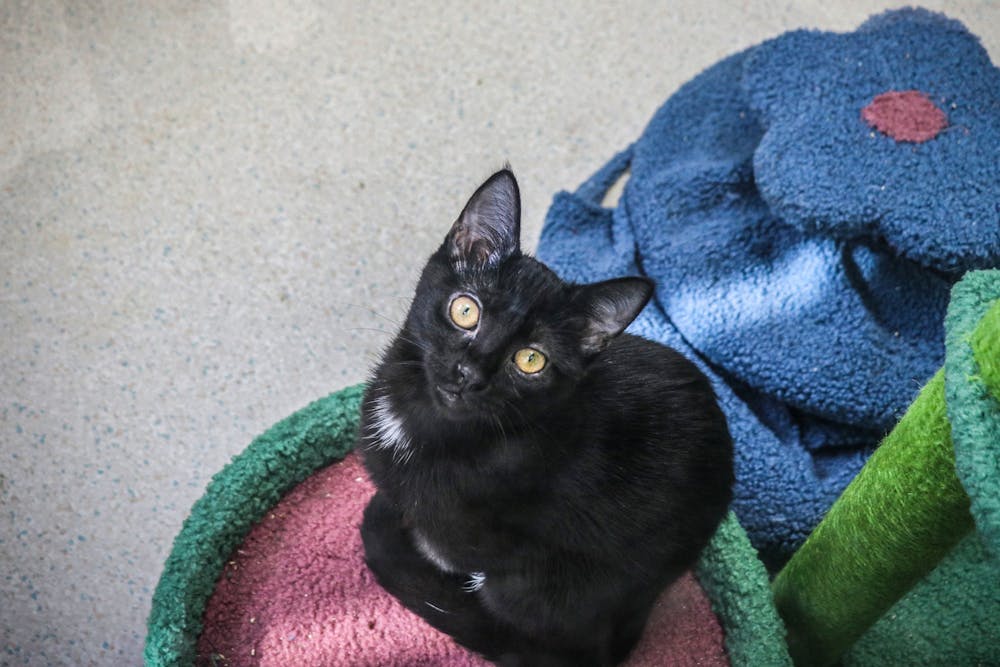Superstitions are formed due to people’s tendency to recognize and label patterns in the world. Whether or not there is proof demonstrating that there is a relationship between crossing a black cat’s path and bad luck ensuing, people oftentimes believe in these outdated ideas just to be safe.
According to Robert Dobler, a lecturer in the department of folklore at IU, superstitious behavior is driven by uncertainty. Especially for college students who are experiencing newfound independence and the anxiety that comes with it, they may turn to years-old superstitions to give them a sense of control and certainty.
“A lot of times it’s...even a safety blanket,” he said. “It doesn’t mean that somebody is not rational or...able to form ideas about the world.”
Even though there is no tangible evidence that superstitions are legitimate, they are successful in restoring confidence on an individual level and allow people to interpret the world more quickly.
“Just in case,” he said. “It doesn’t hurt anything to try.”
Yet Dobler said there is also a major drawback to this line of thinking: misinformation can be misinterpreted as superstitions. Specifically with the pandemic, he explained how people misconstrued ingesting bleach as a cure for COVID-19 as a superstition to believe in.
“This is something that cleans. So, if we want to get something out of our body, let’s use something that cleans this mess,” he said. “We often call that sympathetic magic.”
Related to superstitions, sympathetic magic is based on imitation and correspondence. Imitation refers to using objects that influence the environment or individuals while correspondence involves impacting something based on its relationship with something.
IU subject librarian for folklore Moira Marsh mentions another con: the fact that superstitious thinking exists produces anxiety about how it works. Since it has no consistency, it can increase tension and stress when it does not work or when people do not know the outcome.
“There’s a tiny bit of anxiety there that hadn’t been there before,” she said.
Moreover, according to Psychology Today, superstitions can heighten anxiety by reinforcing the need to carry out a certain action so they feel reassured.
For example, a year ago, people started to believe that when IU men’s basketball coach Mike Woodson wore a suit on game day, the team would win. After winning 11 games wearing a suit and losing three games wearing sweats, many favored the coach dressing up despite no evidence showing it helped the team win. A superstition was created out of almost nothing, yet they relied on this pattern to quell their anxiety about the game’s outcome.
On campus, the Folklore and Ethnomusicology Student Association hosts open discussions about the history of superstitious thinking. Professors come to speak about their research and organize events at IU that help spread folklore knowledge. Co-president Jonas Fos said supernatural belief is experimental and quite ambiguous. As to misinformation, while they can overlap, Fos has his own way of distinguishing the two.
“(Misinformation) gets more explicitly xenophobic...it windmills out of control,” he said. “Superstition is a bit more morally or ideologically neutral.”
Outside of this club, students have their own personal superstitions that they believe in and act on.
Freshman Samuel Price said he tends to rely on superstitions when overthinking or being indecisive about something. The primary superstition he believes in involves throwing salt over one’s shoulder if something is spilled on the table to get rid of bad luck.
“I don’t know if it’s true,” he said. “But there’s a part of me that thinks it’s true every time I go do it.”
Freshman Talia Goodman said when going to sports games, she wears the same jersey that the team won in. She said she also knocks on wood, so she does not jinx it.
“I don’t even necessarily believe it,” she said. “It’s more of just like a fun thing.”
Academically, she always makes sure to get a good night of sleep and go through her entire self-care routine before a test because she believes it helps her perform better.
Ultimately, superstitions can both act as a buffer and stimulant of anxiety and misinformation. It is up to us to decide whether and how we want to incorporate them into our lives.






